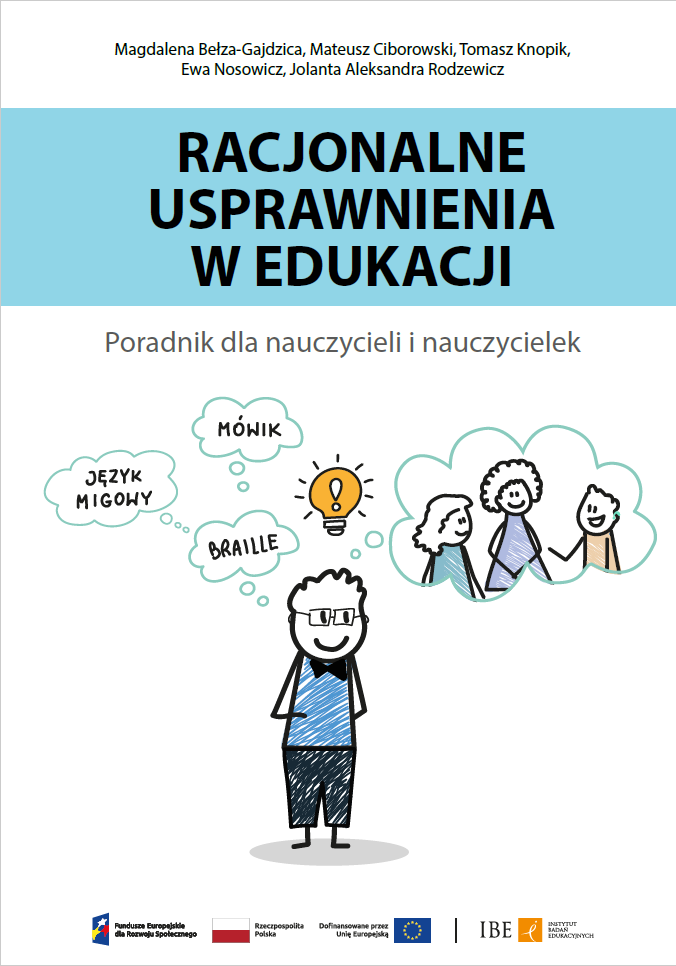At the point when the possibilities of ensuring equal rights in access to learning based on universally planned measures (UDL –universal design for learning model) are exhausted, the need to implement reasonable accommodation arises.
The guide “Reasonable Accommodation in Education. A Guide for Teachers” is another publication in which IBE experts explain how to make education more accessible. This time their focus is on reasonable accommodation, dedicated to specific types of diverse educational needs, including disabilities. The guide is a continuation of the earlier publication “Universal Design in Education. A Guide for Teachers”.
At the point when the possibilities of ensuring equal rights in access to learning based on universally planned activities (UDL model) are exhausted, the need to implement reasonable accommodation arises. Teachers, who know their group and the abilities and needs of individual pupils, recognise the potential risk of excluding an individual from joint activities. For example, the teacher knows that a person with a mild intellectual disability may have difficulty understanding a written text. Instead of giving such a pupil a completely different text (which will exclude her from working as part of a class team), an easy to read and understand (ETR) version is prepared. This type of enhancement offers the chance to share a common field of attention, to carry on a conversation based on the same plot threads at the level of the whole class. In this sense, reasonable accommodation has an integrative function, as well as supporting the development of social competence.
Download “Reasonable Accommodation in Education. A Guide for Teachers”
The publication “Reasonable Accommodation in Education. A Guide for Teachers”:
- introduces the concept of reasonable accommodation
- gives examples of the most commonly used accommodations
- discusses in detail accommodations that can be applied to specific special education needs
We encourage you to read the guide. Accessibility to All!
Dr. Magdalena Bełza-Gajdzica, key expert at IBE, presents the content of the guide:
These materials have been prepared as part of the project “Supporting the accessibility of education for children and youth’, funded by European Funds for Social Development (FERS).
#funduszeUE #FunduszeEuropejskie


